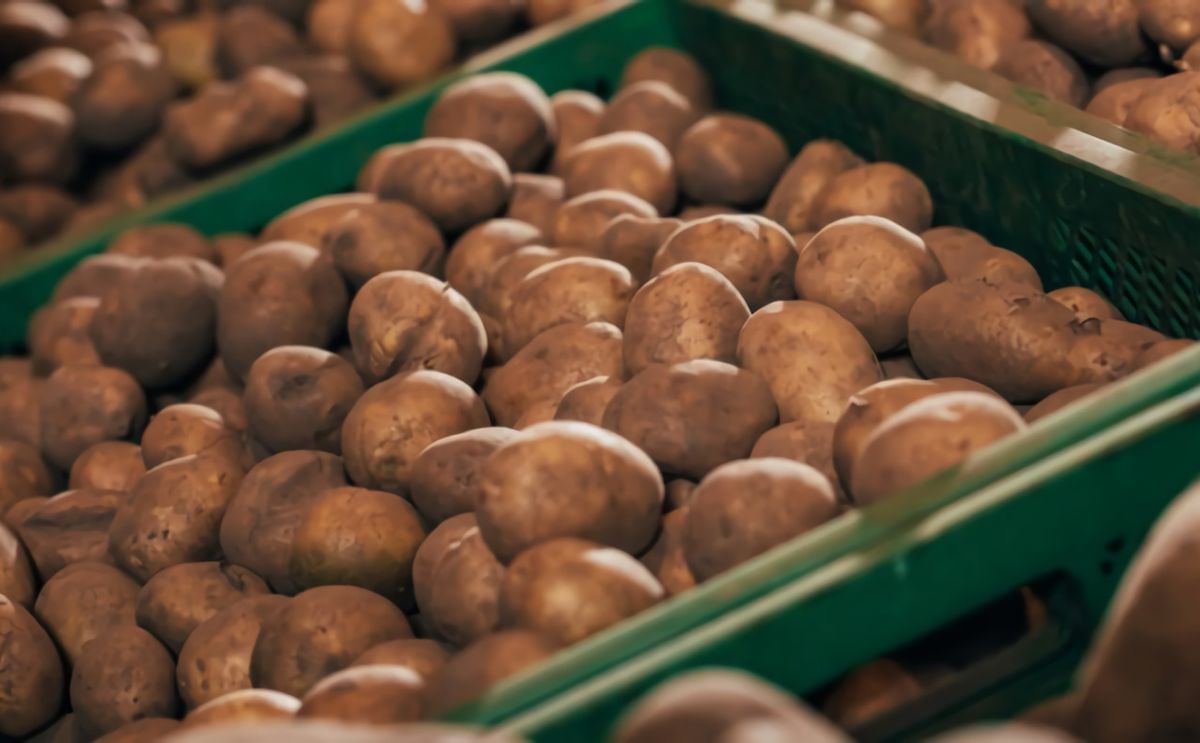People rarely think of Washington when talking about potatoes. Yet much of what happens in the fields— from fertilizer prices to seed genetics— is shaped, directly or indirectly, by decisions made in the U.S. capital. The United States is not only a giant producer; it is a de facto regulator of global trade, an exporter of rules, subsidies, and agricultural diplomacy.
The country has a support structure that gives its producers an almost structural advantage: soft credit, federally backed crop insurance, energy subsidies, and a marketing network that stretches from Idaho to the Middle East. What truly complicates the picture is how Washington combines that economic strength with diplomacy, sanitary barriers, and strategic alliances.
The New Closeness Between Trump and Milei
A recent event illustrates this starkly: the United States bought Argentine pesos and agreed to a USD 20 billion currency swap to stabilize Argentina’s financial market, right before the legislative elections.
That explicit backing shows two things: first, the geopolitical role the U.S. assigns to Argentina within its Latin American sphere; and second, its ability to intervene directly in an ally’s finances to preserve stability at key moments.
This closeness between Trump and Milei is not symbolic; it is operational. The purchase of pesos was a clear signal— a substantial show of support that goes beyond words.
Agricultural Diplomacy as a Tool of Power
Washington wields its agricultural foreign policy with a geopolitical scalpel. Its relationships with Canada and Mexico— its immediate neighbors— prove it. Both countries are part of the USMCA, a treaty that deepened North American agro-industrial integration, though not without tensions.
With Canada, the memory is still fresh: in 2021, the United States suspended fresh potato exports from Prince Edward Island on alleged phytosanitary grounds— the detection of a soil-borne fungus— severely affecting local growers and triggering accusations of disguised protectionism. The dispute was resolved months later, but it exposed how “technical” arguments often serve as pretexts for political or commercial decisions.
With Mexico, the story is even more complex. For years, Washington pushed to open the border to U.S. fresh potatoes beyond the 26-kilometer zone, something only achieved in 2022 after a long legal battle. Today, the border is open, but with mutual inspections, disputes over quality, and a simmering commercial cold war that never quite goes away.
These conflicts among partners reveal a constant: when it comes to potatoes, the United States leaves nothing to chance. Every move, every restriction, every sanitary rule is part of a strategy aimed at securing dominance over the entire value chain— from seed to the supermarket freezer.
Brazil and the Delicate Balance of Regional Power
In this regard, Brazil is hard to ignore. There, Trump has imposed punitive tariffs of 50% on Brazilian products under commercial and political arguments. Yet despite that open confrontation, Lula and Trump recently held talks. One side opened the phone line, they exchanged proposals, and left the door open to a potential thaw at a future summit. Brazil, irritation aside, remains an ascending giant— one of the emerging pillars of the world map. Its alignment with the BRICS is no footnote; it serves as a counterweight to U.S. policies, and Trump knows it.
Argentina, the Strategic Piece in the South
On this global board, Latin America— and especially Argentina— stands out as a piece to watch. The region’s growth in French-fry consumption is the fastest in the world, even surpassing Asia, and the major players know it. It’s no coincidence that Lamb Weston chose Mar del Plata for its new plant. The company saw more than a logistical opportunity: it saw institutional stability across Argentina’s agro-industrial chain, technical talent, and a prime location to supply the Latin American market without depending on North American trade routes.
Meanwhile, the northern part of the continent consolidates itself as a producer of scale and standards; the south, as a supplier of quality and opportunity. But Washington’s policies continue to set the pace. Trump’s return reshapes alliances: a close relationship with Milei could open more fluid trade channels with Argentina— perhaps on asymmetric terms— while his antagonism with Lula could harden trade with Brazil, affecting the balance within Mercosur.
A Fast-Moving Board
The challenge is clear: unless Latin America strengthens internal cooperation, countries will end up negotiating individually with powers that know how to act as a bloc. The United States does so with Canada and Mexico; Europe with its treaties and green standards; China with its web of credit and infrastructure.
If the Global South wants greater autonomy, it must think of itself as a bloc: integrating supply chains, coordinating phytosanitary policies, developing its own processing industry, and investing in a regional value-added brand. Because while Washington sets the rules of the game, many producers in the Southern Hemisphere remain, in practice, mere players.

